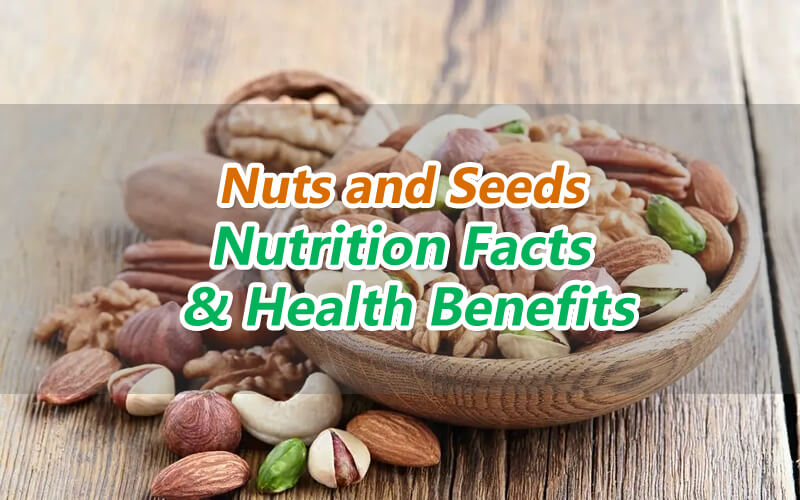Nuts and Seeds Nutrition Facts & Health Benefits
A nut is a fruit consisting of a nutshell with a edible kernel. however, all nuts are actually seeds.

What are the nutrients in nuts and seeds?
Nuts and seeds are the source of energy and nutrients for the new plant. They provide beneficial fats, vitamins, minerals, proteins, and carbohydrates. They contain a relatively large quantity of calories, essential unsaturated and monounsaturated fats, including linoleic acid and linolenic acid, and essential amino acids.
Nuts have a higher fat content than seeds do, whereas seeds tend to be higher in iron. Both contain beta-carotene, B-complex vitamins, vitamins D and E, and calcium, and are excellent sources of vegetarian protein. They contain phytosterols, or plant hormones, that have a structure similar to that of human hormones and support the endocrine system and all its functions, including reproductive health. Raw nuts and seeds also contain lipase, an enzyme that helps the body digest fats.
What are the health benefits of nuts and seeds?
Nuts and seeds are a source of essential omega-3 fatty acids. Long-term consumption of diverse nutrients found in nuts may help to reduce the risk of cardiovascular disease. When consumed in moderation, nuts and seeds can actually help control fat and cholesterol levels in the body. They are themselves cholesterol-free and can help lower levels of LDL (Low-density lipoprotein).
Here is a list of edible nuts and seeds that may be a part of your healthy diet. Details of their health benefits and nutrition facts
| Almond | Flax seed (linseed) | Pistachio |
| Brazil nut | Hazelnut (Filbert) | Pumpkin seed |
| Cashew nut | Macadamia (Hawaii nut) | Mustard seed |
| Chia seed | Peanut | Sesame seed |
| Coconut | Pecan | Sunflower seed |
| Chestnut | Pine nut | Walnut |